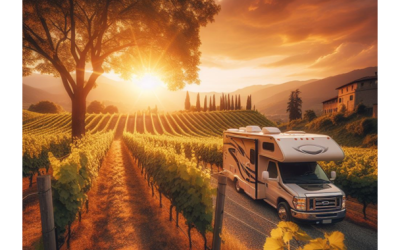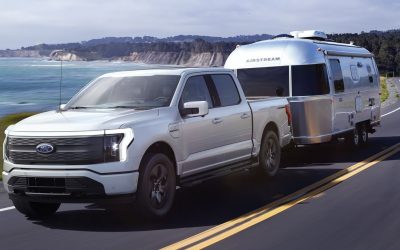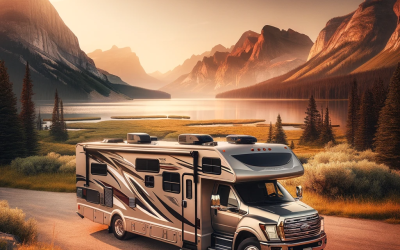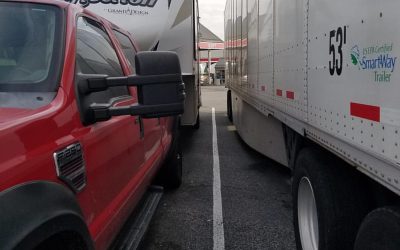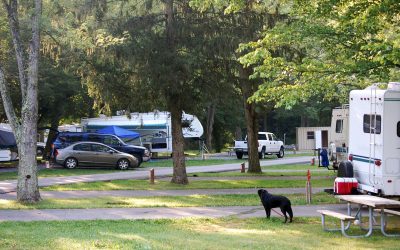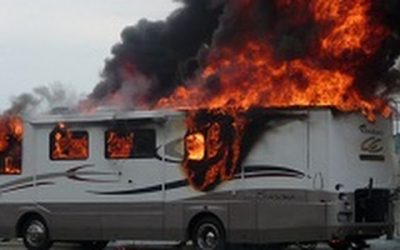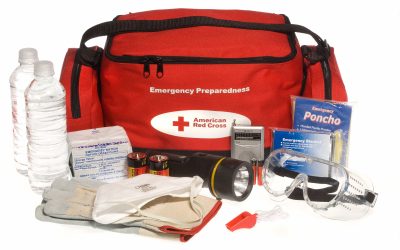RV Camping Tips
Can You Stream Like You Do at Home?
The Ultimate Guide to RV Streaming in 2024 Imagine relaxing at your campsite after a long day of exploring, only to discover there's nothing good on local TV. For many RVers, this can be a real bummer. But fear not! With the right setup, you can stream your favorite...
Save 15% on Harvest Hosts Membership
Save Big on Unique Stays! Imagine sipping wine at a scenic vineyard after a day of exploring a charming countryside farm. Or picture yourself enjoying a craft beer at a local brewery, surrounded by the sights and sounds of a vibrant community. These are just a few of...
7 Tips for Never Running out of Water
Mastering Hydration in the Wild Lost in Death Valley: A Cautionary Tale Desert heat. Vanishing water supply. Disoriented by a faulty GPS, Donna Cooper and her companions faced a terrifying reality in Death Valley National Park in July 2010. Their story, chronicled in...
Can You Tow an RV With an Electric Vehicle?
An In-Depth Analysis Imagine the sun setting over a vast, windswept mountain vista as you pull into your dream campsite. The air is crisp, the silence only broken by the chirping of crickets. However, this tranquility isn't disturbed by the usual rumble of a gas...
RV Classes Demystified
Choosing Your Perfect Home on Wheels Imagine waking up to a breathtaking sunrise over snow-capped mountains, the gentle whisper of waves lapping against your doorstep, or the vibrant cacophony of a bustling city square – all from the comfort of your home. This isn't...
Ultimate Guide to RV Electrical Systems: Basics, Batteries, Inverters, Solar Power, and Maintenance Tips
Your RV is a home away from home, and understanding its electrical system is crucial for a safe and enjoyable experience. In this comprehensive guide, we'll delve into every aspect of RV electrical systems, ensuring you have the knowledge to make informed decisions...
Avoid Common RV Scams and RV Rental Fraud
The Rise of RV Popularity and the Increased Risk of Scams The RV lifestyle has seen a surge in popularity in recent years, attracting millions of enthusiasts. However, this boom has also made the RV community a prime target for scams. From Outdoorsy scams to...
Quick Guide to Overnight RV Parking at Truck Stops
If you're an RV adventurer, you've likely pondered the question: "Where can I safely park overnight?" Truck stops are often the answer. They're not just for truckers; many RVers find them to be a convenient, economical, and secure option. In this comprehensive guide,...
Ultimate Guide to RVing with Pets
Tips for Pet-Friendly Campgrounds, Travel Prep & On-the-Road Pet Care Are you an animal lover looking to explore the open road with your furry companion? RVing with pets is becoming more and more popular, and for a good reason! With an RV, you can bring your pets...
RV Fire Safety – the Ultimate Guide
As RVs become more popular for travel and recreation, it’s important to understand the potential fire risks and how to prevent them. RVs are at a higher risk of fires due to their smaller space, propane appliances, and electrical systems. It is crucial to take...
Family RV Trip Guide: Tips for Traveling with Kids, Kid-Friendly Activities, and Top Campgrounds
Are you planning a family vacation and considering an RV trip? Traveling with children can be challenging, but with careful planning and preparation, it can be a memorable and enjoyable experience for the whole family. In this article, we’ll provide you with tips and...
Essential Guide to Handling RV Emergencies: Medical, Mechanical, and Electrical Safety Tips
RV trips are a great way to explore the outdoors and make memories with loved ones. However, emergencies can happen anytime, and being prepared is crucial to staying safe on the road. In this guide, we will provide tips on how to handle various RV emergencies,...


